Purchasing a car is a big decision. It’s not only a major purchase but also a long-term commitment. Whether shopping for a new or used car, both options have pros and cons.
So, which one is right for you? From considerations like auto financing to vehicle history reports, we’ll help you make the best decision for your needs. Here’s a look at the pros and cons of buying used versus new cars and what you need to consider before deciding.
Pros of Buying a Used Car
There are many reasons why buying a used car can be a good idea.
- Upfront savings – You can often get a used car for significantly less money than a new one. This is especially true if you buy from a private seller or an auction. Dealerships typically charge more for used cars. That’s because you might have more negotiating power when purchasing a used car than a new one. This varies depending on the dealership or seller, but it’s generally easier to haggle over price on a used car.
- Less depreciation – A used car will usually have already taken its biggest depreciation hit. New cars lose significant value as soon as they’re driven off the lot. This better insulates you from negative equity situations if you need to sell the car.
- Monthly savings – You can expect lower monthly car payments and insurance rates with a used car. And often, you can save even more down the line with auto refinancing if interest rates drop.
- More personality – Some people prefer driving a used car. There’s something about knowing that your car has lived a little that can make it feel like more of a companion than a brand-new machine.
Now let’s take a look at the cons of buying a used car.
Cons of Buying a Used Car
There are a few potential drawbacks to consider before buying a used car.
- Maintenance history – It’s impossible to know the vehicle’s complete history. Even if you buy a used car from a reputable dealer, it’s difficult to know how the previous owner(s) treated it. If previous owners haven’t maintained it properly, unseen damage might lead to repairs in the future. To assist you in identifying any potential concerns, get a pre-purchase inspection from a professional mechanic.

- Potential problems – In addition to maintenance issues, there could be other car problems that you’re unaware of. For example, the car might have been in an accident that wasn’t reported, or there could be hidden damage from a previous owner. Again, a pre-purchase inspection can help you identify any potential problems.
- No warranty – Used cars usually don’t come with a manufacturer’s warranty. If something goes wrong, you’ll be responsible for the repairs.
- Less choice – When you buy a new car, you can choose the model, color and options you want. When you buy used, you’re limited to what’s available on the market. Also, used cars generally have fewer features than new cars and might not have the latest safety technology.
Now let’s examine the pros and cons of buying a new car.
Pros of Buying a New Car
There are some significant advantages to buying a new car.
- Up-to-date features – New cars always have the latest technology, safety features and creature comforts. If you’re looking for the latest and greatest, a new car is the way to go.
- Warranty and lower maintenance costs – New cars usually come with some type of warranty that covers maintenance and repairs for a certain period. This can help decrease costs if something goes wrong with the car.
- Financing options – You might be able to get a better financing deal on a new car than a used one. This is often true if you’re buying from a dealership. It might offer promotional rates or other incentives that make financing a new car more attractive. In addition, you can increase these savings later if you refinance when rates drop. You can use a refinance car loan calculator to see how much you can save.
- New car smell – There’s something about that new car smell that some people can’t resist. It signifies a fresh start and a clean slate. So if you’re looking for that new car experience, getting that new car smell might be essential.
Now that we’ve taken a look at the pros, let’s discuss the cons of buying a new car.

Cons of Buying a New Car
There are also some potential drawbacks to consider before buying a new car.
- Higher cost – The cost is the biggest downside to buying a new car. They’re simply more expensive than used cars. This can be due to supply chain issues, production costs and marketing expenses.
- Higher insurance rates – New cars also tend to have higher insurance rates than used cars. This is because they’re more expensive to replace if stolen or totaled in an accident.
- Availability – Thanks to supply chain issues and chip shortages, specific models might have limited availability. This makes it challenging to find the exact car you want, and you might find yourself waiting for up to a year until it’s available.
- They don’t stay new – This might seem like an obvious point, but it’s worth mentioning. No matter how well you take care of your new car, it will never be brand new again. It will eventually show signs of wear and tear, and you’ll have to deal with the inevitable repairs and maintenance that come with owning a vehicle.
The list seems to be pretty evenly split.
Which Is Right for You?
Ultimately, the decision comes down to your needs and preferences. A new car is probably the way to go if you’re looking for the latest features and technology. However, if you’re on a budget or prefer a used car’s personality, you might want to consider going that route. Whatever you decide, be sure to do your research and shop around to get the best deal.

